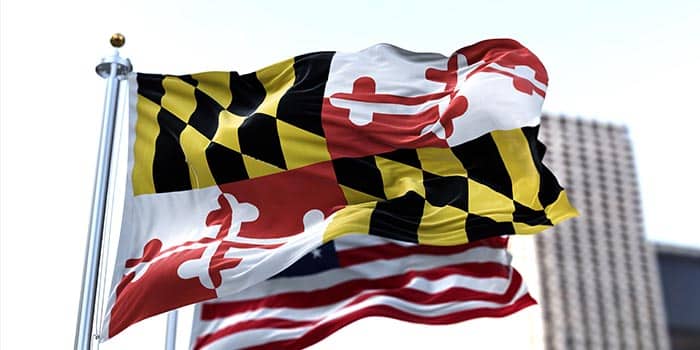
Maryland lawmakers have decided against the initial plans to introduce a significant tax hike for online sports betting. While the tax hike will still happen, it will be much lower than previously discussed.
Maryland Decides Against Boosting the Tax to 30%
The original tax hike was outlined in Governor Wes Moore’s budget proposal. Published in January, the proposal sought to double Maryland’s 15% online betting tax to 30%.
This drastic hike would have mirrored a similar measure in Ohio, which doubled its tax on betting two years ago. Moreover, the talks about higher taxes follow a broader trend that has swept multiple US jurisdictions.
In Maryland, lawmakers argued that higher taxes would align Maryland with its neighbors and introduce a sounder tax policy. However, a new decision would tone down the planned tax hike.
Last week, the House of Delegates’ Ways and Means Committee discussed the tax hike proposal. Although they agreed to raise the online betting tax, they proposed a much more modest increase of 5% to 20%.
Committee members voted in favor of this amended version of House Bill 352. The extra tax revenue will fuel the state’s general fund. This would effectively increase the industry’s contributions to the Old Line State, while still saving operators some expenses.
Casino Table Games Tax Remains Unchanged, Marylanders Get Tax Cuts
In the meantime, lawmakers seem to have struck down Gov. Moore’s proposal to raise the tax on casino table games from 20% to 25%.
While online sports betting operators will pay a bit more, the latest budget will take some of the tax burden off Marylanders’ shoulders. According to Moore, 94% of all people in the state will either get a tax cut or remain unaffected in terms of income taxes. He added that only those who have “done exceptionally well” will have to pay more.
Moore clarified that the extra money would support local schools, law enforcement and firefighters.
Maryland Continues to Wage War on Sweepstakes
Meanwhile, Maryland regulators are busy trying to get controversial sweepstakes operators to stop offering their products to local players. Sweepstakes, which remain unregulated in the United States, have experienced significant growth recently, prompting regulatory scrutiny.
In Maryland, a proposal to outlaw sweepstakes gained significant traction earlier this month, potentially spelling trouble for sweepstakes companies. In the meantime, the Maryland Lottery and Gaming Control Agency just ordered VGW, one of the biggest social casino companies available in the US, to cease and desist.
Shortly after that, the state regulator published a list of all legal gaming services available in the state. It also published a list of all operators that have received cease-and-desist orders from the agency.



